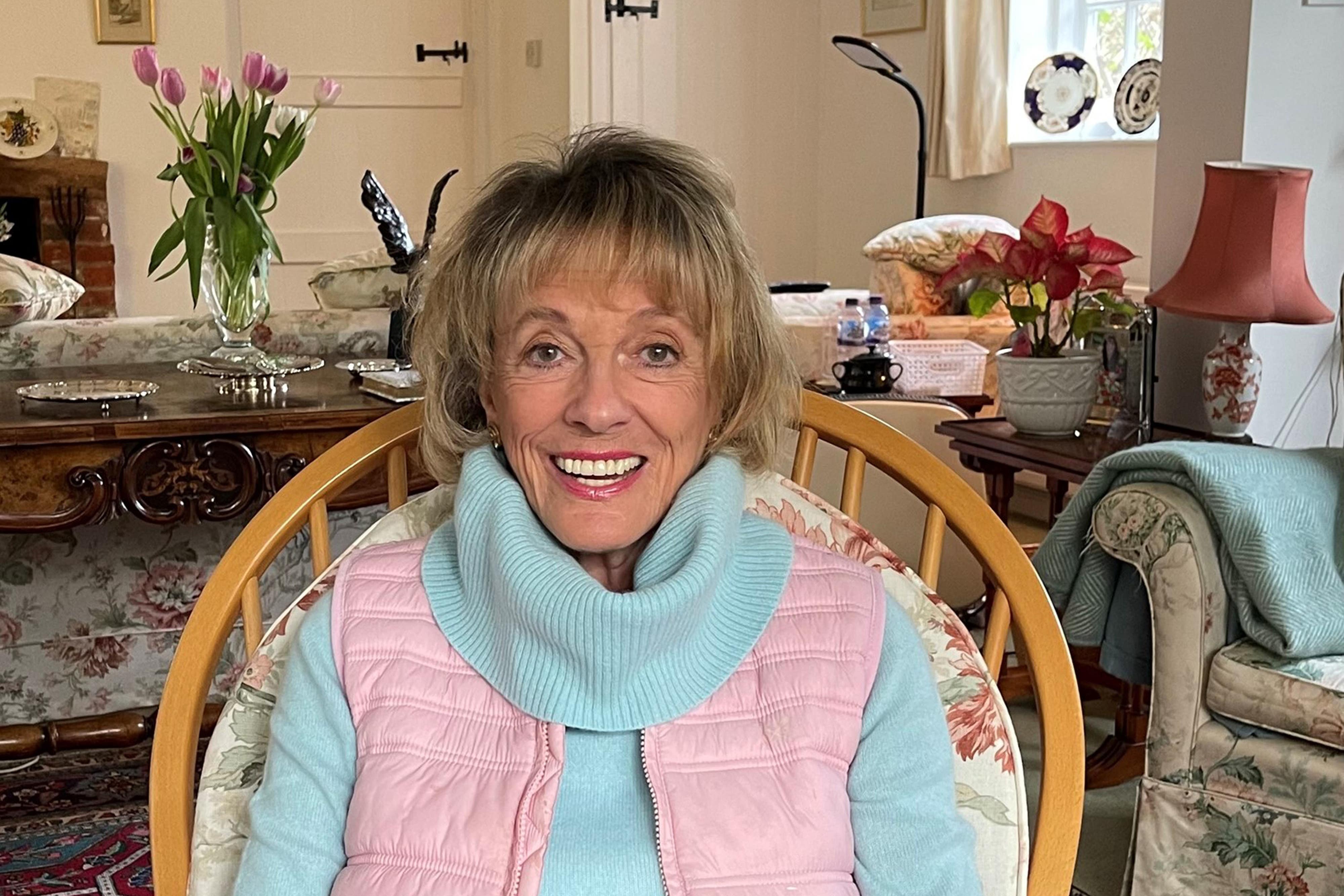Assisted Dying Bill gives ‘glimpse of hope’, says Esther Rantzen
A private members’ Bill to legalise assisted dying will be introduced in the House of Lords on Friday.

Your support helps us to tell the story
From reproductive rights to climate change to Big Tech, The Independent is on the ground when the story is developing. Whether it's investigating the financials of Elon Musk's pro-Trump PAC or producing our latest documentary, 'The A Word', which shines a light on the American women fighting for reproductive rights, we know how important it is to parse out the facts from the messaging.
At such a critical moment in US history, we need reporters on the ground. Your donation allows us to keep sending journalists to speak to both sides of the story.
The Independent is trusted by Americans across the entire political spectrum. And unlike many other quality news outlets, we choose not to lock Americans out of our reporting and analysis with paywalls. We believe quality journalism should be available to everyone, paid for by those who can afford it.
Your support makes all the difference.TV star Dame Esther Rantzen said she has “caught a glimpse of hope” with a fresh bid to legalise assisted dying being laid before Parliament on Friday.
Former Labour justice secretary Lord Falconer of Thoroton will introduce a private members’ Bill in the House of Lords which would allow terminally ill adults with six months or fewer left to live to end their lives.
Dame Esther has been campaigning for assisted dying to be legalised since she was diagnosed with lung cancer in January 2023.
Writing in the Daily Express, she said: “This week, for the first time for over a year, I caught a glimpse of hope… I have dared to look forward.”
What we terminally ill need is to be allowed the hope that if life becomes intolerable, we can ask for help to leave it.
She said the first reading of the Bill had provided “light at the end of a tunnel which has trapped me for so long”.
“What we terminally ill need is to be allowed the hope that if life becomes intolerable, we can ask for help to leave it,” she wrote, saying the existing law meant anyone accompanying her on a trip to Switzerland to end her life would be breaking the law.
“The law might actually change in time for me to die peacefully at home surrounded by those I love. Suddenly my heart lifted.”
Last week, Dame Esther’s daughter Rebecca Wilcox said her mother is “living from scan to scan”.
Prime Minister Sir Keir Starmer has doubled down on a pre-election commitment to allow a free vote on changes to assisted dying laws, but has declined to put a timetable on it.
Lord Falconer was chosen second in the ballot to introduce the Assisted Dying for Terminally Ill Adults Bill.
It is likely to be debated over the coming year and if it receives sufficient support, it could become law.
Lord Falconer said the idea of legalising assisted dying has moved up the political and social agenda in recent decades.
He said there are safeguards in his Bill, including that the person has to be mentally able to make the decision, two doctors would have to approve it and it must have High Court approval.
Some campaigners have called for any new law to be extended to people living with unbearable suffering, who may not be terminally ill, but Lord Falconer said he is “very strongly against that”.
He told the BBC Radio Four Today programme: “My Bill is absolutely directed about how you die in the context of a terminal illness.”
Assisting someone to end their life is currently a criminal offence in England and Wales.
An emotional debate in Westminster Hall earlier this year saw MPs from across the political spectrum give impassioned speeches for and against changing the law.
Critics argue that legalisation could put pressure on vulnerable people to end their lives for fear of being a burden on others and that the disabled, elderly, sick or depressed could be especially at risk.
Proponents say it would allow people to die with dignity and some argue that death is a private matter and the state should not interfere.
Health Secretary Wes Streeting said he is “uncharacteristically undecided” on the issue.
He told the Today programme: “This will end up being both an ethical debate – ‘is this right in principle?’ – and it will also go to being a practical debate – ‘can this work in practice?’. And I think it’s contingent on us to help MPs and peers navigate those thorny issues in the most evidence-based and well-supported way as possible, recognising there’ll be sincerely and strongly held views on both sides of this debate.”
He added: “It is a debate I will wrestle with. I’m uncharacteristically undecided on this issue, but it is a debate whose time has come.”
Baroness Tanni Grey-Thompson said she is happy for there to be a full debate “because I think everybody needs to understand the implications of this becoming law”.
But she argued that despite the safeguards outlined, the law could still be “open to a huge amount of abuse”.
Asked about the public mood, she told Today: “When you ask people the simplistic question ‘do you support assisted suicide?’ a lot of people say ‘yes’. When you dig beneath that and people realise we’re not talking about palliative care, we’re talking about end of life, that support drops dramatically.”